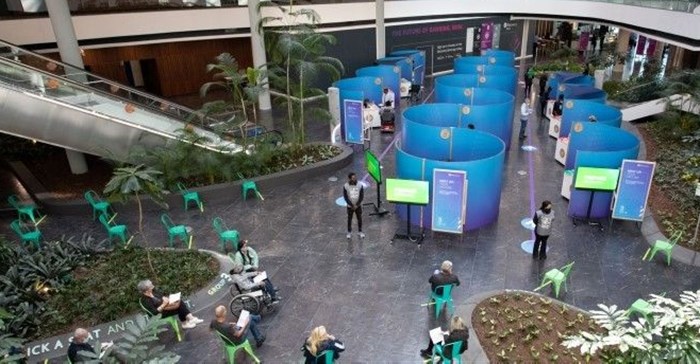
“For that we need to have a very high vaccination percentage,” says epidemiologist and vaccinologist Professor Charles Shey Wiysonge.
Wiysonge was talking to Phumelele Makatini, chief executive and principal officer of the Building and Construction Industry Medical Aid Fund (BCIMA) who hosts Tea with Phumi a conversation platform which aims to provide further insights into developments within the South African healthcare and medical scheme’s environment.
“At first, we used to talk about 67%, but of course knowing that not everybody in the country is eligible for vaccination, we need very, very high coverage in the adult population – maybe 90%, even 95%. In that way we may reduce or even stop the transmissions.
“There would be protection at the individual level, but also at community level.
“For this to happen, people need to have the right information and we all have to play our part to make sure that people are literate about vaccinations,” Wiysonge says.
“There are a lot of myths around vaccines as a whole, but I think there is more hesitancy around Covid-19 vaccinations than vaccinations in general,” says Wiysonge.
He says that the barriers to Covid-19 vaccinations uptake range from supply and availability to the psychosocial factors that inhibit the uptake.
“There is a different solution to each barrier, as there is no one size fits all solution.”
Wiysonge believes the most immediate solution to barriers is innovative thinking.
“I think the government and the private sector are doing a lot to bring vaccinations to the people, but we need to do more to ensure that people don’t have to travel long distances to get their jabs. We also need to have more vaccination stations open on weekends, “ he says.
“Having vaccination sites close to where the people are situated is vital. This includes vaccinations in places such as taxi ranks, or grant queues for the aged,” he says.
Wiysonge says we also need to consider more convenient hours and look into the possibility of vaccination options such as trains or long-distance busses.
“Why not extend vaccination hours into the evenings so that people who can’t do it during the day, can have their jabs after hours?” he asks.
He agrees that vaccine hesitancy is a real problem, but believes we need to understand the hesitancy, listen very carefully to what the concerns are and provide adequate responses in the form of solutions and accurate information. “I’m sure if we do that, the majority of people will accept the vaccine.”
“We need to be able to give the right information. There has been a lot of misinformation and that there are myths around vaccines.
People also keep changing the goal posts. “When you clarify one concern, they bring up another one,” he says.